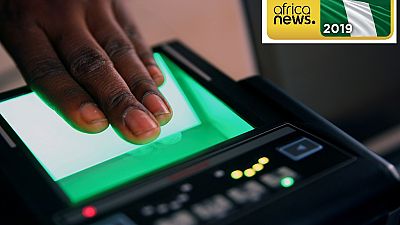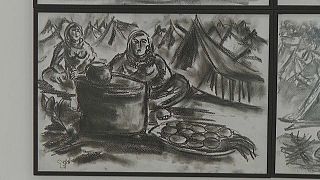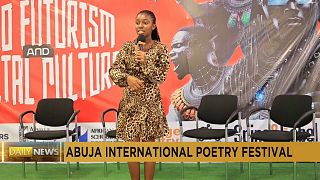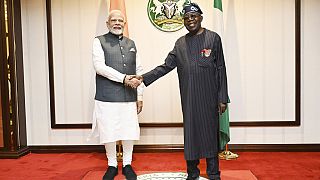Nigeria
It’s election season in Nigeria and a record number of voters were registered by the Independent National Electoral Commission (INEC), which can be interpreted as an indicator of how high the stakes are in the forthcoming Presidential, Senatorial and Legislative elections.
The presidential election where incumbent president, Muhammadu Buhari is contesting for a second term in office, is particularly heated, characterised by questions of credibility and perceived electoral injustices.
Last week, the main opposition People’s Democratic Party (PDP) halted its campaign, protesting Buhari’s decision to suspend the country’s chief justice who is accused of breaching asset-declaration rules.
Chief Justice Walter Onnoghen, who heads the Supreme Court, would have ruled on any legal challenge to the result.
Will it be a credible election?
Buhari has repeatedly vowed to deliver a credible election, even as his All Progressives Congress party (APC) and PDP accuse each other of plotting election fraud.
Both the PDP and APC were accused of vote-buying in recent governorship elections.
The United States and Britain, key allies of the West African nation have threatened to deny visas to anyone involved in vote-rigging or election violence.
Issues dominating campaigns
Hopes for a peaceful and credible election are just one of many issues that have dominated the campaigns and aspirations of Nigerians ahead of the February 16 election.
Just like the 2015 elections where Buhari made history and became the first opposition candidate to unseat an incumbent president, corruption, insecurity and the economy are the key issues likely to influence voters’ decisions.
The fight against corruption
While Buhari tackled corruption in his first term, particularly through the single treasury account that he claims has reduced leakages in the country’s finances, his government has been accused of embarking on a political witch-hunt of his rivals, in the name of fighting corruption.
Indeed, when campaigns were launched, Buhari emphasised that he needed another mandate to consolidate the groundwork already laid in his fight against corruption, revival of the economy and the struggle to secure Nigerians against terrorists and internal security threats.
“We are committed to deepening the work we started this first term such that the nation’s assets and resources continue to be organised and utilised to do good for the common man,” Buhari said at the manifesto launch.
READ MORE: The slogan underlying Buhari’s re-election campaignReviving the economy
Buhari’s main rival in this presidential election, PDP’s Atiku Abubakar, has chosen to focus on Buhari’s failings as far as reviving the economy for the benefit of Nigerians.
“If the state of the average Nigerian has not improved in the last three and a half years, more of the same is obviously not what they need,” Atiku’s camp said in response to Buhari’s appeal for a second term.
In his bid to diversify the economy and create much needed jobs for Nigeria’s massive youth population, Atiku says he will introduce bidding rounds for marginal fields and oil blocks, privatise government-owned refineries and issue new licences for greenfield investments in crude refineries.
READ MORE: Buhari’s anti-corruption agenda vs Atiku’s economic growth plansSecuring Nigerians
Buhari, who pledged to defeat the terrorist group, Boko Haram is likely to be judged harshly by voters’ assessments of security.
While Buhari’s government has repeatedly declared that Boko Haram has been defeated, the group continues to terrorise populations in the NorthEastern parts of the country.
The deadly violence between mostly Christian farmers and mainly Muslim nomadic herders that has broken out in the Nigerian hinterland states known as the Middle Belt, will also be a key factor that could decide the election outcome.
Buhari’s critics say he is soft-peddling justice for the killings because he, like most of the herders, is from the Fulani ethnic group and is Muslim.
Buhari’s 2015 win was helped by the fact that he gained votes in the Middle Belt, where the predominantly Muslim north and Christian south collide.
“The region includes several states that are likely to be hotly contested, including Plateau, Taraba, Nasarawa and the Federal Capital Territory, which the PDP won by margins ranging from three percent to 12 percent in 2015,” said Ben Payton, head of Africa research at Verisk Maplecroft.
ALSO READ: Buhari says he is fit to govern, Atiku is ‘ready to die’ for NigeriaLack of political diversity?
In the build up to the election, Buhari’s APC party was hit by a wave of defections as senior politicians including the senate president Bukola Saraki, switched allegiances to PDP last year.
Atiku, a founding member of the opposition PDP, also helped form Buhari’s APC coalition in 2014, before quitting in 2018 to rejoin the PDP.
READ MORE: Buhari says APC defectors have no grievances against his gov’tPolitical observers agree that Nigeria’s political landscape needs to extend beyond the traditional political parties, whose members are accused of having no true ideology rather than their quest for power.
PDP governed Nigeria from 1999 until 2015, when president Goodluck Jonathan was unseated by Buhari.
2019 will be the fifth time Buhari is running for president, while Atiku will be contesting for the top job for the fourth time.
With the youth segment (18-25) having the highest number of voters at 42,938,458 voters (51.1%) of registered voters, it has been argued that the more youthful candidates in the presidential race could stand a chance of unseating the ruling elite.
ALSO READ: Nigeria’s leading female aspirant quits presidential raceThe Numbers
Nigeria is Africa’s most populous nation and has the continent’s biggest economy. The country is deeply divided with one of the most fundamental rifts between the mainly Muslim north and the largely Christian south.
Here is a quick look at the numbers that will be key ahead of the election;
- 84,004,084 registered voters
- 91 political parties
- 72 presidential aspirants
- More than 200 ethnic groups
Nigeria’s electoral system provides for presidential candidates, who contest with running mates, that become their vice-presidents if a bid is successful.
The candidate with the most votes is declared winner as long as they have at least one-quarter of the vote in two-thirds of Nigeria’s 36 states and the capital. Otherwise there is a run-off.
Presidential and National Assembly elections will be held on 16 February, 2019 while the Governorship, State Assembly, and Federal Capital Territory Area Council Elections are scheduled for 2nd March 2019.












Go to video
Ghana overtakes Nigeria in U.S. visa overstay rates, new report reveals
00:58
Somaliland opposition leader wins presidential poll
01:00
Senegal's ruling Pastef party claims victory in snap legislative electioins
01:00
Chidimma Adetshina crowned Miss Universe Africa and Oceania
01:10
Voters head to polls in Somaliland as leaders hope for global recognition
01:11
Chad's electoral body disqualifies senior ruling party official